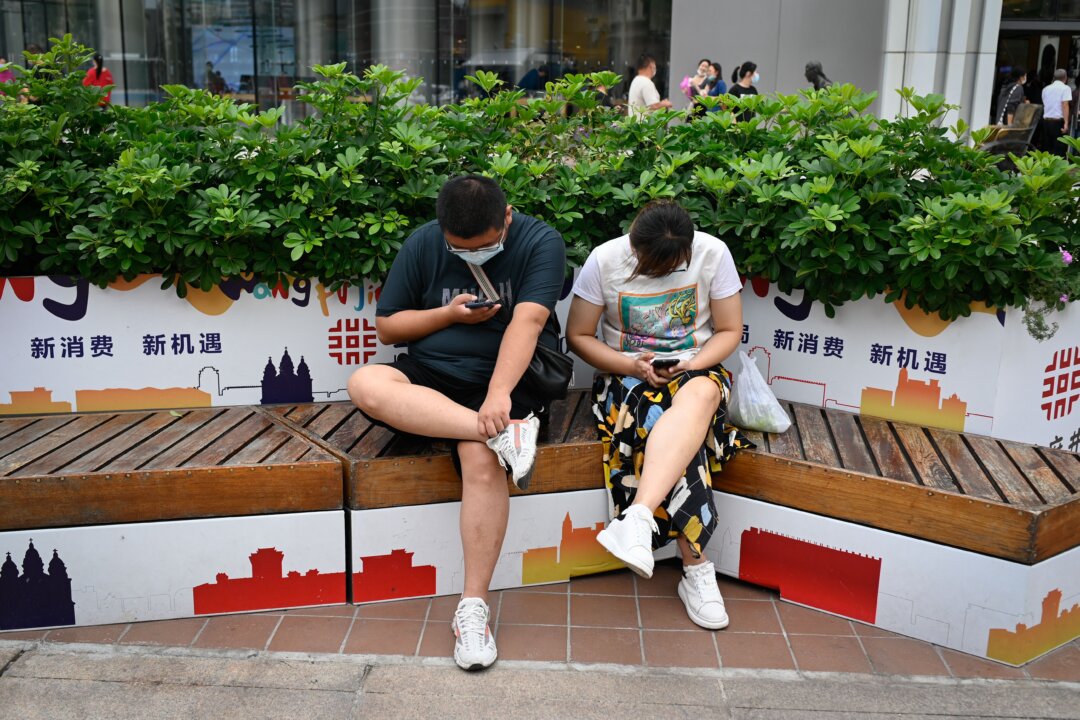The buzzword reflects a sense of widespread pessimism and resignation among China’s young adults, observers say.
News Analysis
As Beijing urges the younger generation to endure hardships, many Gen Zers are embracing a more relaxed lifestyle, identifying themselves as “rat people.” Some China analysts say that this phenomenon underscores a troubling sense of despair and hopelessness among the youth regarding their future amid China’s economic decline and bleak job prospects.
The buzzword has recently gained momentum across Chinese social media. These self-identified “rat people” share videos showing how they spend most of their time in bed, getting up only for bathroom breaks and retrieving food deliveries left at their doorstep.
Describing their lifestyle as “low energy,” these netizens tend to shy away from socializing or going out. Some said in posts that they can stay in bed for up to 23 hours daily.
Videos and posts about “rat people” have gained hundreds of millions of views on platforms like Douyin, the Chinese version of TikTok, and Weibo, the equivalent of X. The hashtag “rat people” has garnered more than 10 million views on Weibo as of May 9, indicating a growing trend.
As of May 9, the vlog received 45,000 likes on Douyin and more than 2,100 likes on Weibo, garnering many comments. Most viewers expressed admiration for this leisurely lifestyle, while others shared that they have been living this way for years.
One netizen commented, “I’ve been a rat man for five years … I don’t socialize at all.”
Some China observers say the buzzword reflects a widespread pessimism and resignation among the Gen Zers.
“Young people see little hope for society and the governments,” Li Yuanhua, an Australia-based history scholar and former associate professor at Beijing’s Capital Normal University, told the Chinese edition of The Epoch Times.
“They express their quiet defiance through this kind of giving up, self-abandonment, and maintaining a lifestyle that meets only their basic daily needs.”
Li said these young people have the mindset: “I don’t want to work hard, because hard work won’t make a difference.”
This recent phenomenon echoes a trend that went viral four years ago, when many young people in China rejected the rat race, in favor of a lifestyle known as “lying flat.”
They rejected the demanding work culture of long hours, especially the “996” style—working from 9 a.m. to 9 p.m., six days a week—which is prevalent in the country’s tech and digital sectors. Frustrated by constant competition and pressure, many opt for a simpler life that shuns expensive products, starting a family, or buying their own homes.
That mindset has drawn criticism from the ruling Chinese Communist Party (CCP). Xi Jinping, the Party’s top leader, has publicly cautioned against “lying flat” and called on the Gen Zers to work hard and be able to “eat bitterness,” a Chinese expression for enduring hardship.
Xi reiterated the message to mark the occasion of Youth Day on May 4. In a front-page article published in People’s Daily, the Party’s official newspaper, he told young adults to move to the countryside to work and support the Party’s version of modernization.Xi made the remarks as the country’s economy continues to decline.
A prolonged housing crisis has put immense pressure on many middle-class Chinese who poured their life savings into a home. This situation is further exacerbated by a years-long regulatory crackdown on the private sector, from food delivery to after-school tutoring institutions, resulting in tens of thousands of jobs being slashed.
“This lifestyle ultimately stems from a poor economy and a poor job market in China. Many college graduates are struggling to find work, especially after the pandemic,” Geng Luqi, a young Chinese man who previously taught music at a tutoring center, recently told The Epoch Times.
Geng said that “a whole generation of young people is battling for limited opportunities,“ pointing out that ”despite the fierce competition, hope is dwindling.”
That’s why everyone simply chooses to “lie flat,” he said.
Official data show that the unemployment rate for the 16–24 age group in cities reached 16.5 percent in March.
The figure does not include individuals enrolled in school or those who have stopped looking for work. According to China’s official guidelines, a person is considered unemployed only if he or she has actively sought employment within the past three months and can start a job within two weeks of receiving an offer.
Concerns about the economy’s future have increased due to the ongoing tariff war with the United States. With U.S. tariffs exceeding 100 percent, many small and medium-sized Chinese companies that depend on foreign trade have had to suspend operations and pivot to the domestic market. This shift has put thousands of factory jobs at risk.
Economists at Goldman Sachs predicted in April that the triple-digit U.S. tariffs potentially threaten as many as 200 million jobs in China, while also lowering their projection of China’s economic growth from 4.5 percent to 4 percent this year.
Even those who have found jobs are experiencing a decrease in their income compared to previous years, according to Allen Guo, who works in the public sector in Shenzhen city.
Guo, who opted to use a pseudonym due to fear of retaliation from authorities, recently told The Epoch Times that graduates securing positions within local governments or public sectors—jobs that have become popular in recent years due to their security—now earn around 4,000 yuan to 5,000 yuan (about $553 to $692) monthly. This figure is about a third of the average monthly salary reported by local authorities in Shenzhen, where the cost of living far exceeds that of many other cities in China.
“Young people feel trapped,” Guo said, which is why “they’re indulging in their phones and downgrading spending,” referring to a trend among Chinese who choose to spend less and save more in response to the slowing economy.
“No one knows what the future holds.”
Yi Ru contributed to this report.

